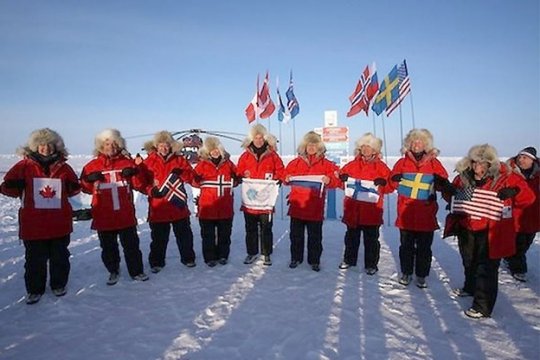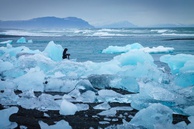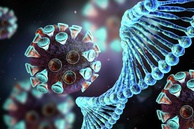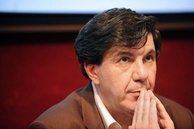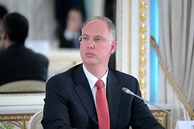Russia Today press center has hosted an online briefing of Nikolai Korchunov, a special envoy of the Russian Foreign Ministry and a senior official on the Arctic Council from the Russian Federation. The briefing focused on the outcome of an online meeting of Arctic Council seniors, which took place in Reykjavik on November 17-19, and Russia’s priorities as a member of the Council.
As he addressed those present, Nikolai Korchunov said that the Reykjavik session was the first plenary meeting under the Icelandic chairmanship in an online format bringing together about 170 participants, who represented countries which were members of the Arctic Council, observer countries, and international, regional and non-governmental observer organizations.
In accordance with the agenda of the session the participants in the meeting discussed a number of issues of social and economic importance which made a lot of difference for residents of the Arctic Region: how to guarantee energy supply of remote settlements and create advanced energy supply technologies. Other issues on the agenda included activity for protecting the marine environment and remove waste that contaminates the ocean.
The participants in the meeting also concentrated on the importance of information exchange and the sharing of useful technologies in combating COVID-19. This becomes particularly relevant considering the degradation of permafrost because of global warming and the ensuing release of unknown bacteria and viruses which had lain dormant in the frozen soil for thousands of years.
The discussion was held amid reports by the Icelandic Meteorological Agency on climate changes in the Arctic. Last year saw a dramatic decrease in the size of ice cover and record high temperatures. Such a situation stimulated a more intensive cooperation between meteorological services of the region.
The Russian delegation presented the priorities of Russia’s presidency in the Arctic Council in 2021-2023. According to the special envoy, Russia will focus on sustainable development of the Arctic Region and will push for the three components of such a development: the social sphere, nature protection and economic growth. In May 2021 there will be a session of the foreign ministers of the Arctic Council, timed for the 25th anniversary of the organization.
The Russian special representative went on to answer questions from the moderator and the online audience.
Question: Which projects, initiated by Iceland in the course of its presidency, will be continued by Russia?
N.Korchunov: In accordance with the tradition of continuity Russia will work on to guarantee sustainable development, which includes uninterrupted navigation in the Arctic latitudes. Russia will also promote projects that focus on the protection of the environment, particularly the marine life, and an effective management of environmental risks in the conditions of intensive economic development of the region. The issue of preserving biodiversity is high on the agenda. What is of particular relevance is to enhance the survivability of the indigenous people and their infrastructures in the conditions of warming-inflicted changes of the local natural landscape. Another issue of concern is adaptation of Arctic residents to climatic changes.
Question: How are you going to celebrate the 25th anniversary of the organization?
N.Korchunov: We will mark the jubilee with concrete deeds. It is essential to provide the ministerial Declaration, which will be put for consideration in May next year, with specific goals and a task-oriented agenda so that we could achieve practical results. These include the concept of “green navigation” in high latitudes, re-cultivation of industrial sites, utilization of associated gas in oil and gas production, modernization of fisheries, Arctic cruise tourism.
Question: The issue of sustainable development is passed on from one presiding country to another. Why is it so important?
N.Korchunov: The principles of sustainable development make it imperative that we resolve the problem of environmental damage. Our President said as he addressed the Federal Assembly that it is necessary to create a closed-loop economy. In fact, sustainable development and a closed-loop economy are two sides of the same coin. I would like to say it again that Russia calls for a balanced approach to the social, economic and nature protection components of the sustainable development model. For some countries, due to their geographical location, the environmental aspect comes first. For Russia, all three are equally significant.
Question: During the Russian presidency there are plans to present the Inter-Regional Border Cooperation Program. What is it all about? What are the aims of the Program? What is the role of the Foreign Ministry in developing this Program?
N.Korchunov: The Russian Foreign Ministry, along with the Ministry for the Development of the Russian Far East and Arctic, has been an active participant of all programs and projects designed to strengthen border and regional cooperation. In addition to the Arctic Council, there is the Barents Euro-Arctic Council, and part of this Council is the Regional Council, which deals with inter-regional cooperation, “Northern Dimension” programs, including cultural, educational and nature protection projects. The Yakutsk-based Northern Forum is also focused on inter-regional cooperation.
The development of a comprehensive Inter-Regional Border Cooperation Program for incorporating all elements of such cooperation is bound to yield a lot of benefits.
Question: Nearly the entire Arctic is becoming a special economic zone with a variety of tax benefits. What does it mean for the region and its residents? Are we ready to let foreign investors in?
N.Korchunov: As for attracting investments to the Arctic Region, every injection costs a lot because of its specific climate and geographical location. This is applicable to foreign companies as well, which are already operating in the Russian Arctic. For example, “Novatek”, which supplies liquefied natural gas (LNG) to European and Asian markets. The Arctic is already playing a big role in ensuring global energy security and improving global energy balance towards climatic neutrality. The region has good prospects for diversifying and guaranteeing transport security. Climate change leads to more intensive navigation through using the transit potential of the Arctic Sea Route. Rosatom is working to create a corridor which would guarantee the delivery of cargoes from Europe into Asia.
Question: You mentioned “green navigation”. What do you mean by it?
N.Korchunov: This means transition to less toxic fuel and accordingly, to more environmentally friendly energy generation technologies. For example, our nuclear icebreakers are climatically neutral: their “carbon print” is “zero”. The Institute for the Support of Arctic Council Projects is considering the transition to hybrid vessels with gas and electric engines.
Question: You mentioned Arctic tourism. What can we offer at the moment?
N.Korchunov: When luring tourists into the Arctic, we need to remember that they cause a heavier load on the existing infrastructure. There will be more pressure on facilities that recycle solid domestic waste, hoteling services, and transport logistics. This is to say that tourism, in addition to carrying new opportunities, is fraught with risks, which may grow into threats. That is why we need to demonstrate a comprehensive approach, which would take into account all the factors, so that the development of tourism in the Arctic will not interfere with its sustainable development and will not damage the environment.
Question: How did the coronavirus pandemic affect the work of the Arctic Council? Did it face new challenges or new opportunities?
N.Korchunov: Of course, the Council’s work has become more complicated. The transition from face-to-face communication to online contacts laid bare problems such as computer freezes, Internet malfunctions. But these problems underscored the need for the Council’s member countries to pay a particular attention to the development of telecommunications in the Arctic on account of its specific conditions: location, transport routes, extreme temperatures.
Question: Can the change of power in the USA affect the activity of the Arctic Council?
N.Korchunov: The United States has so far given no signal that they may withdraw from the Arctic Council. The new administration may reconsider the priorities. We have witnessed the US efforts to enhance its own security in the Arctic. Over the past two years the US has passed three Arctic strategies: by the Defense Department, the Coastal Guards and the Air Forces. This testifies to Washington’s intention to project its military potentials to the regions. This cannot but cause concern. Russia does not consider the Arctic Region a theatre of military confrontation. On the contrary, we view it as a strategically important region which accounts for up to 20 % of export and about 25 % of budgetary revenues. For this reason, Russia wants the region to remain a zone of international cooperation and collective approaches.
Question: Is the expanded presence of NATO in the Arctic fraught with a rise in conflict potential?
N.Korchunov: At present, the Arctic is deemed a low tension zone, but there are signs of an increase in conflict potential. Until recently, NATO had no Arctic strategy or Arctic policy, which signaled low level of tension in the region. Of course, we are critical about the internationalization of military operations in the region at the expense of non-Arctic countries. We do see this trend. In 2018 Britain publicized its Arctic strategy thereby becoming the first non-Arctic country to adopt such a document. Russia has already informed its partners about its concern over the issue.
read more in our Telegram-channel https://t.me/The_International_Affairs

 0:53 30.11.2020 •
0:53 30.11.2020 •
